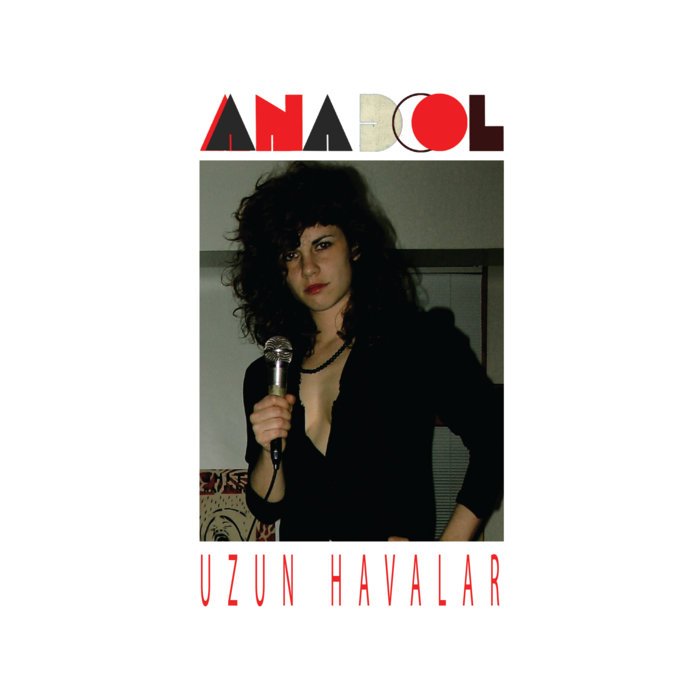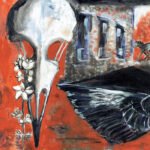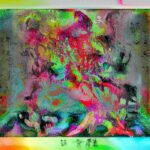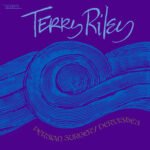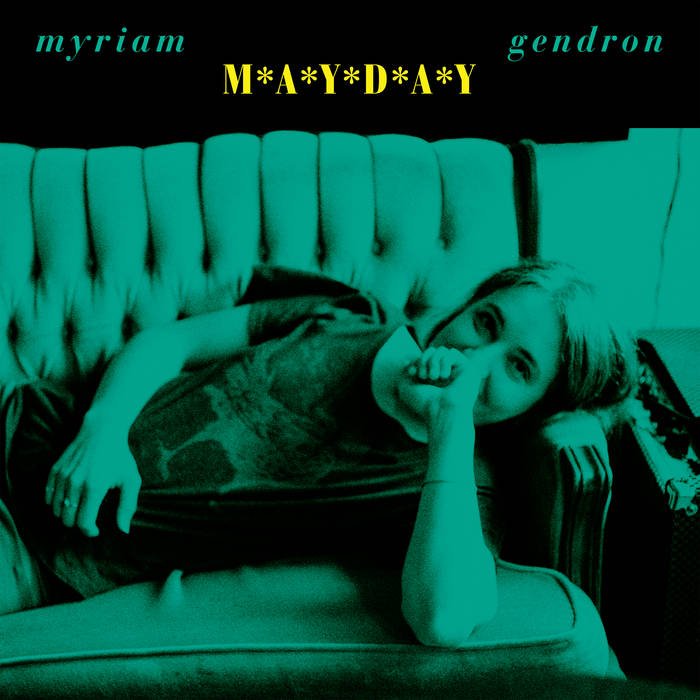Anadol, “Uzun Havalar” (Kinship (2018)/Pingipung (2019))
This 2018 album was not Anadol’s debut, but it was definitely the first album from the project that actually managed to reach a wide audience (quite deservedly, since it is an absolute banger). The project (named after an old Turkish automobile brand) is self-described as “psychedelic synth folk” this time around, as Uzun Havalar is assembled from “collective improvisations of Middle Eastern folk songs called ‘uzun hava.’” While the album was recorded in Istanbul with a varying ensemble of talented improvisers, Anadol is ostensibly the solo project of Berlin-based photographer and sound artist Gözen Atila, who delved into lo-fi synth pop to escape the “darkness of serious music.” In that regard, she succeeded quite spectacularly, as Uzun Havalar evokes the kitschy magic of a fun (and remarkably virtuosic) ‘80s Turkish wedding band indulging their wildest prog & space rock dreams.
The heart of the Anadol sound is Atila’s fondness for “mini organs manufactured during the 70s and 80s,” as she clearly relishes using their preset rhythms as the playful foundations for these pieces. Anyone who ever owned a cheap Casio will likely recognize a festive pre-programmed “samba” or “bossa nova” setting or two on this album, as Atila loves the inherent humor and challenge in “working with clichés” and transcending the limitations of retro electronics and minimalist gear. She also has a deep fondness for the “tavern music” aesthetic that was popular in Turkey’s nightlife in the 1980s, which usually involved a lone musician with a keyboard singing an eclectic array of pop hits to drunk middle-aged couples in pubs.
While I would probably love a pure pastiche of that era, that is just one of the many eclectic inspirations behind Uzun Havalar, as Atila and her ensemble gamely assimilate everything from classic Euro/Turkish film soundtracks to Dada-esque art provocations to outsider artists like The Space Lady. Hell, I think classic Pink Floyd may even be in there as well, but the actual influences matter less than the fact that Atila and her cadre of Turkish improv luminaries manage to keep things sizzling and propulsive despite the campy and improbable genre collisions that they are continually navigating.
Most of the strongest pieces fall on the first side of the album and the best of the lot is either “Ay Çürüdü (The Moon Decayed)” or “Casio Havası.” Notably, the latter is the only solo Atila performance on the album, but its kooky and sensuous groove somehow sounds like a killer jazz ensemble borrowed the gear from a minimal wave act for a smoldering afterhours set at an Turkish nightclub. It absolutely rules, but so does the similarly wild and weird “Ay Çürüdü.”
“Ay Çürüdü” deceptively starts off with little more than melancholy synth chords and some smoldering and soulful contributions from saxophonists Fehmican Gözüm and Suphi Sökücü and trumpeter Serkan Emre Çiftçi, but catches fire in sublime fashion once the wistful vocal melody comes in. I am honestly not sure if that melody is vocalist Lale Kardeş singing through some effects or if it is the “voice” setting on one of Atila’s organs, but it is sensuous, slow-motion heaven regardless. There are also plenty of spirited whoops and gales of laughter along the way, a trippy synth solo that recalls classic Pink Floyd at their spaciest, and killer production that makes the brass bits sound absolutely amazing on headphones. In short, it’s an absolute tour de force.
I was also a bit blown away by the freewheeling opener “Görünmez Hava (Invisible Air),” as a locked groove-style bass line and a jazzy pre-set rhythm anchor a weird and wild trip though an eclectic array of organ sounds. Unusually, Atila is joined by Emir Özer on synth, so there is an amusing “dueling synth” aspect to the piece that sounds like the pair are gleefully channel-surfing through various proggy and spacey synth sounds, but they also seem to always have a cool melody idea already locked and loaded for each fresh setting. The dubby effects on Askin Kirim’s trumpet are quite nice as well.
While the remaining four pieces do not ascend to quite the same level as those highlights, they are at least memorably eccentric and outré. For example, “Adieu” lands somewhere between the carnivalesque and a manic jazz score to a chase scene in a ‘70s underground animation film, while “Bir Garip Kan İçme Töreni (A Strange Blood-Drinking Ceremony)” sounds like it could be a Nintendo game theme colliding with the ululations from hammily over-acted scream queen auditions. Both “Ya Evde Korksan (What If You’re Scared at Home?)” and the melancholy guitar closer “78 Yılının En Uzun Dakikası (The Longest Minute of ’78)” have their share of cool moments though.
Normally, I would not hail an album with only three great songs as a masterpiece, but Uzun Havalar is a rare exception, as the best bits are almost impossibly cool and it is also damn near impossible not to love Atila’s cheerfully deranged and endlessly entertaining “anything goes” aesthetic. At its best, this album sounds like it could be an imaginary Sublime Frequencies comp entitled “Killer Turkish Wedding Band Inexplicably Got Booked to Play a Psychedelic Laser Light Show at a Planetarium (and They Absolutely Smashed It).”
Listen here.

